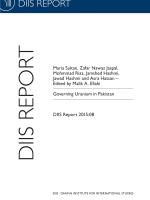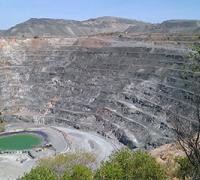Governing Uranium in Pakistan
Pakistan has three operating nuclear power plants and two under construction with another two planned. Although not a global player in the uranium market with small production figures (around 40 tonnes of uranium per year), Pakistan is revitalising its uranium exploration efforts and plans to significantly increase the share of nuclear energy in its domestic power generation.
Pakistan’s development of a nuclear programme, initially for peaceful purposes, shifted to acquiring a military deterrent as the emergent state struggled with the political baggage of partition, unresolved territorial and other disputes, followed by two wars and a 1974 nuclear test by India. After a series of nuclear tests in 1998 by India and then by Pakistan announced the weapons status of the South Asian neighbours, Islamabad undertook institutional and legislative restructuring and reinforcement of its nuclear programme. The process was further expedited after revelations in 2004 of an international nuclear smuggling network, prompting the development and implementation of new and substantial legislation on export controls, command and control and nuclear security measures and training. Like India, Pakistan remains outside of the Nuclear Non-Proliferation Treaty. Unlike India, Pakistan is largely excluded from the global trade in nuclear materials and technology with its civilian development tied to assistance from China.
This report contextualises Pakistan’s dual search for energy as well as military security as it mastered the front-end of the nuclear fuel cycle. While information specific to uranium governance is limited in Pakistan given the highly classified nature of the programme, the report provides a substantial sense of the organisational and management of Pakistan’s nuclear programme, its legislation and work of the regulator in overseeing the front and back end of Pakistan’s nuclear infrastructure.
The Pakistan country report is part of the larger global ‘Governing Uranium’ project on uranium governance, led by DIIS, which seeks to identify governance gaps in uranium accountability and control and provide policy recommendations for improving front-end transparency, security, and regulation.


